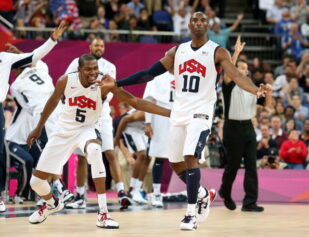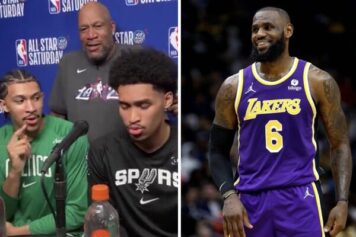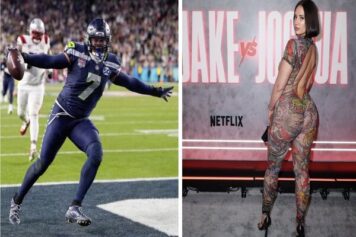LeBron James is not one to wade easily into controversy. James has not been the most vocal supporter of mainstream social justice movements. Not only has he been criticized for what he doesnt say, but also for what he does say.
In September, it was reported that he told the media at a presser that although he supported San Francisco 49ers Colin Kaepernicks right to protest the anthem, he would not join him. James added that he felt that the problem went beyond race: But at the same time, all lives do matter. Its not just about black or white; its everyone.
James received a lot of criticism for his lack of attention to the death of 12 year-old Tamir Rice in Cleveland. Rices Mother admitted she was saddened by the basketball stars lack of support.
With the noted exceptions of activism, including wearing an I Cant Breathe shirt during warm-ups in a December 2014 NBA game, a moving tribute to Black Lives Matter at the ESPYs, and supporting Hillary Clinton at one of her Presidential rallies, LeBron does not seem to speak up in a consistent or an explosive manner.
But the December 2016 Sports Illustrated cover that names James Sportsperson of The Year features him posing proudly with one very exceptional detail – a large safety pin on his lapel.
Following the days of the Presidential election, violent incidents of racism, homophobia, Islamophobia and xenophobia have skyrocketed. Afaf Nasher, Executive Director of the Council of American Islamic Relations (NY Chapter) explains how a drastic spike in hate crimes is connected to toxic political rhetoric.
Attacks have doubled in the NYC region alone. Different organizations are tracking the attacks. The data speaks for itself. Right now, efforts in solidarity with people who feel anxious, scared and even betrayed by the election results, are crucial.
The Safety Pin movement began in North America to mirror an effort that began in the United Kingdom following the Brexit vote. The Brexit debacle seemed to fuel xenophobic sentiment. Muslim immigrants and refugees (or anyone who could pass for them) were the main targets of this bigotry.
Across the Atlantic, allies offered to wear a safety pin, literally a safety pin, as a visible example that they would stand up for People of Color, LGBTIQ community and Persons with Disabilities- namely those who felt targeted and physically unsafe.
The fair criticisms of this action began to pour in. Ijeoma Oluo wrote how wearing a safety pin is not nearly enough. Christopher Keetly opined that white people were applauding themselves consistently with disingenuous accessories. He wrote that the pins were useless since their main purpose was Making White people feel better.
Academic and Activist Zoe Samudzi pointed out that the safety pin fad was being co-opted by fascists. Understandably, people from marginalized communities were encouraged to be on the alert and not trust the safety pin.
In no way am I advocating for wearing a safety pin in lieu of educating, mobilizing and supporting criminalized and racialized communities. People are genuinely terrified.
There have been far too many incidents and attacks on innocent folks for it to be considered a one off.
Dismantling systems of oppression will never be as easy as finding a pin in a sewing kit and posting selfies on Instagram.
There are very efficient ways to offer assistance to folks who are terrorized by the increasing turmoil and hatred openly spewed online and in the communities in which we live. As a Muslim woman who wears hijab, I am an easy target.
The National Council of Canadian (NCCM) Muslims tracks hate crimes and attacks. Over 80% of attacks in Canada have been on women of colour, and those in headscarves. I have mentally and physically prepared myself for a physical or verbal altercation.
The thought of an ally and of support is appealing. I dont rely on it. I dont fool myself into thinking that a stranger might put themselves at risk. I certainly dont expect Black women, Queer folks or Latino men to jump in front of me.
Combating bigotry has always been on the shoulders of the oppressed.
That being said, I cant lie. If I was feeling stressed and anxious, a friendly face, smile and maybe that tiny safety pin might offer some comfort. It doesnt replace the unlearning that people need to do. It is not a convenient strategy to avoid having the excruciatingly uncomfortable discussions the privileged must have. It doesnt mean that tweeting pictures of safety pins is better than reading and amplifying the words of or offering financial assistance to grassroots organizations doing the work.
Wearing a safety pin is not doing the work.
It might provide me a chance to exhale. It might give me confidence to get up and fight when I am pushed down the stairs; or when a Sikh man is beating beaten because of his beard; or when a trans woman is being pelted with abuse because it seems that the way to celebrate the win of a racist and misogynist is to terrorize and isolate people.
James was reportedly unsettled about the election results, It was very difficult seeing what happened not only in our state, but in our country.
LeBron James is not a white man who could benefit from wearing a symbol of solidarity pinned to his lapel. He is no co-opting a message to offer himself cookies. He is not making the mistake of centering himself in this discourse. No, James wearing a safety pin is not an answer.
But solidarity is not linear.
Muslim-Americans, African-Americans, Asian-Americans and Arab-Americans are facing so much blind hatred. So, I choose to appreciate the efforts of a Black man who is part of a community that has been bombarded with police brutality.
He did not have to select the largest and most debonair pin to wear on the cover of a hugely popular sports magazine. But he did. It was a quiet gesture. But I saw it. And it comforts me because he is an influencer. King James can use his majestic platform to help draw attention to injustice.
Do I wish that all superstar athletes from the affected communities might speak up about how Islamophobia is a cancer and is hurting so many people? Absolutely. Will I be upset if they dont? Definitely not.
Athletes and celebrities do not always speak up or act in the way we would like. They make mistakes. Athletes of color might be protecting their own families, and themselves. I will never judge or expect them to protect me.
But in an era where racist cruelty is the modus operandi, I will take LeBron James pin. Not as a solution, but as an offering to remember those who are at risk; and to fight hard alongside others in whichever way possible to decimate the racist systems that are destroying our peace.




